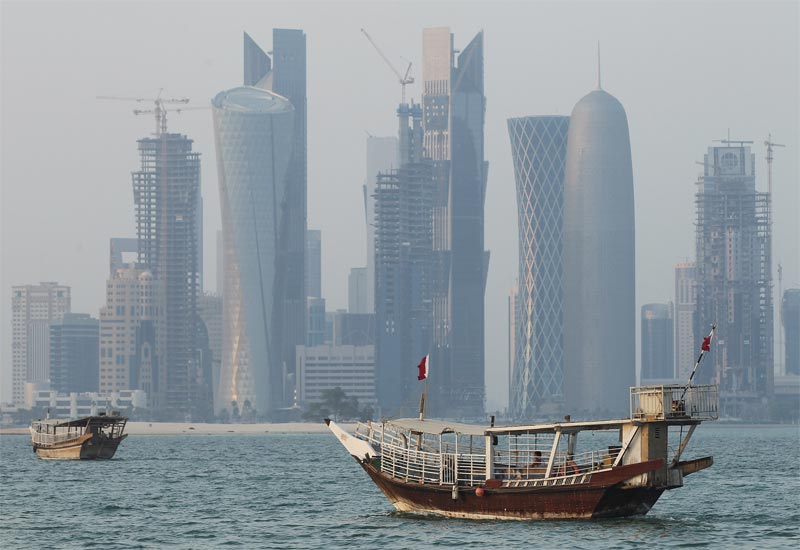 A look at the Doha skyline; the capital city is gearing up for Qatar hosting the World Cup 2022, and the hotel sector is anticipating a 50% increase in inventory within the next three years alone.
A look at the Doha skyline; the capital city is gearing up for Qatar hosting the World Cup 2022, and the hotel sector is anticipating a 50% increase in inventory within the next three years alone.
InterContinental Doha director of F&B Georges Khalil agreed with Franzen, and said many international chains have opened in hotels. “Most of them have either franchise concepts or international brands. However, I always see competition as a healthy way of improving and getting creative with the offerings.”
Crowne Plaza Doha food & beverage manager Marko Golub said nightlife has also been added to the focus on restaurants: “There is an increase in new restaurants as well as several hotels focusing on nightlife events to increase their revenue throughout the weekend.”
While on the topic of revenues, these Qatar-based hoteliers confirmed the STR Global report of Doha’s revenues. Franzen said the F&B in his hotel accounts for “roughly 45% of revenues”.

| Advertisement |
He continued: “Events are a large chunk of our F&B revenues, and I know many hotels have a higher percentage of F&B revenues than room revenues. However we have a large villa component, which enables us to maximise on long stay room revenues.”
Khalil revealed: “We have a big F&B operation in the hotel — seven different restaurants with banquet and catering — so our F&B revenue makes around 55 to 60% of the total hotel revenue.”
While Golub declined to reveal the exact amount, he said F&B is one of the main revenue generating sources at the hotel “which is showcased by positive annual figures”.
Franzen pointed out that the food and beverage component of hotels is seen to be increasingly important for Qatar.
He said: “It is a tool to differentiate yourself from the competition, if executed well. Five star hotels, by and large, all offer a top rooms product coupled with fantastic service in this region. It is the F&B aspect of the hotels that is able to drive, especially the residential market of the city into the hotels.
People have disposable incomes and are looking for ways to spend the same; they want ‘value for money’ but at the same time the outlets they visit need to be able to give them an experience. Not just a bar, not just a restaurant.”
Khalil added: “The F&B in the hotel business is playing an important role nowadays, as most of the room guests make their decision on the hotel booking according to the offerings and amenities that the hotel has.”
Golub said the phenomenon of an increasing focus on food and beverage is not just seen in Qatar. He explained: “Food and beverage has become a very important focus within the region as hotels open more and more restaurants with new concepts.
“This attracts diverse guests to outlets that offer a wide variety of cuisines. I am looking forward to the new exciting restaurants opening later this year in Qatar.”
When asked how new hotels will make their mark in a growing competitive market, Franzen said: “I worked in Dubai 15 years ago for the first time; at that point we had a handful of 5-star hotels and everyone asked the same question you are asking now about Doha. If we are able to make Doha into a destination where leisure and business mix, along with conferences and attractive connections to Europe and Asia I see no reason why the city should not succeed.”
He concluded: “To give you an example, just putting a branded restaurant in a hotel does not guarantee success; the service delivery and quality need to be there, and the value-for-money needs to be present. Otherwise your guests will not return.”








 Search our database of more than 2,700 industry companies
Search our database of more than 2,700 industry companies









